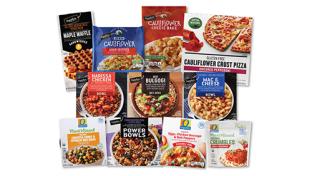Retailers and Brands Can Facilitate Better Eating With Eggs

Consumers may have changed the way they eat, but their needs remain the same: functional food that doesn’t sacrifice taste for nutrition. One food that can meet these needs is the egg.
In a recent study from ingredients company Kerry, 65% of consumers reported that they seek functional benefits from their food and drink. That’s 65% of consumers who are more diligent about reading the nutritional panel on the back of each package, are looking for food that can fuel their lifestyles and are interested in ingredients proved by science to be nutritionally beneficial.
Not only are the days of shopping based purely on taste, smell and texture gone, but both brands and retailers must realize that the flipside of the coin of functional ingredients is education – and lots of it. Companies must put education at the center of their conversations with today’s curious shoppers. Such a proactive approach can build trust, even as industry trends shift.
With the onset of functional ingredients, there has also been an increase in grazing, which has completely disrupted America’s cultural normalcy of three square meals per day. Now, because the nation’s foodies have become a nation of snackers, each snack has more meaning. It must work harder to satisfy consumers’ moment-to-moment appetites, all while propelling them from daily hurdle to daily hurdle.
Each year, content is produced that tells us what we already assume to be true: that we’re busier than ever. In light of our on-the-go lives, grazing has replaced the need to sit down and enjoy a meal. Now it’s necessary that each snack keeps our bodies and minds as sharp as they need to be between the time we rush out the door to the time we come home for dinner.
These shifts within the food industry – from functional ingredients to grazing – don’t need to rattle retailers. They should, however, inspire new action. Today, there is a major need for both grocers and brands to take consumers’ needs in stride while continuing to adapt.
Educate Shoppers on the Beauty of Breakfast – and Beyond
A 2017 Mintel study found that 39% of respondents value high protein when purchasing breakfast foods, 33% value an ingredient panel free from artificial ingredients, 28 percent value items with no additives and preservatives, and 21% prefer organic selections. These findings highlight the high level of consumer demand for premium, nutritious and high-quality breakfast foods.
Brands must elevate their offerings to cater to these consumers who are demanding more from their breakfast foods. Similarly, there’s a major opportunity for retailers to capitalize on these trends by finding natural, whole-food ingredients that they can highlight in their breakfast foods, particularly where the grab-and-go category is concerned.
Make Breakfast an All-Day Affair
Further opportunity lies in making breakfast foods convenient beyond the breakfast daypart. The food industry can bring greater importance to breakfast as a meal, even as snacking makes waves throughout the industry. By promoting products that are functional for a variety of occasions, and by effectively emphasizing their convenience, affordability and nutritional value, retailers can bring to light the importance of each of these attributes for consumers.
We have seen many major chains pivot to all-day breakfast offerings in an attempt to appeal to the current “what I want, when I want it” consumer landscape. Leaders in the food industry can implement convenient options suitable for all-day consumption to capitalize on this trend, particularly in the perimeter aisles and in grab-and-go sections of the store.
Eggs are the perfect showcase for those hoping to capitalize on the increased interest in high-quality protein, nutrient-rich foods and convenience. Highlighting eggs in new breakfast products appeals to consumer demand for real ingredients, nutrition, high protein and all-day breakfast options. In fact, the egg category, by and large, has helped to streamline the ingredient panels of a number of products by offering just this. Featuring a single ingredient as opposed to a long list of unrecognizable ones, eggs are seen as inherently natural and an easy step to cleaning up and simplifying diets while providing high-quality protein.
Adapting to Grazers at Each Daypart
Industry leaders understand that for many consumers, snacking has overtaken meals altogether. Targeting this trend while keeping standards for humanely raised eggs top of mind, items like hard-cooked eggs in convenience packaging and sustainably sourced specialty eggs are ideal additions as protein-rich, ready-to-eat snacks with simple ingredients.
Taking Tangible Action
Because shoppers are at risk for being pulled from claim to claim and functional benefit to benefit, retailers could benefit by creating signage to guide them through the various options available in their egg sets. Fostering transparency and inviting important conversations, which we know many of today’s consumers crave, simple signs or channel strips defining cage-free, free-range, organic and pasture-raised in particular would help shoppers make the selection that lines up best with what they value. With this additional information available, they just may be motivated to trade up in categories and purchase more premium items.
Highlighting product claims and values instead of simply promoting price alone can also help retailers to effectively generate trial in the category. As consumers are searching for functional, on-the-go breakfast items to jump-start their days, sharing short copy about a featured product in the weekly circular, or putting tags on the shelf highlighting key attributes, can help shoppers think beyond price.
Whether consumers are concerned with a clean nutritional label, non-GMO claims or humane standards, brands and retailers leading the industry in big, long-lasting change have made the conscious decision to adapt to their shoppers’ needs. This has guided deeper conversations within the industry and encouraged shoppers to take greater consideration in their purchasing decisions. The food industry as a whole can facilitate change on a larger scale by truly considering shoppers’ evolving needs.







